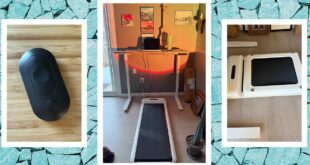Google announced today that it has signed a deal with nuclear startup Kairos Power to build seven small reactors to supply electricity to its data centers. The agreement promises to add around 500 megawatts of carbon-free electricity at a time when energy demand for data centers and AI is surging.
The new power plants are scheduled to come online by the end of the decade, according to Google. It’s not clear whether the reactors would hook up to Google’s sites directly — an arrangement known as “behind the meter” — or if they would feed into the grid with Google claiming the carbon-free power by way of its agreement with Kairos.
With the deal, Google joins Microsoft and Amazon in turning to nuclear power to satiate its thirst for electricity. In September, Microsoft announced that it would pay Constellation Energy to restart a reactor at Three Mile Island that was shuttered in 2019. Earlier this year, Amazon said it would build a hyperscale data center and directly connect it to another nuclear plant in Pennsylvania.
If Kairos can hit the 2030 deadline, it would be a slight revision to a recent forecast: as recently as July, the company was targeting commercial operations by “the early 2030s,” according to an article published by the U.S. Department of Energy. Even if Kairos can hit the revised target, it’s locked in a race with fusion startups, many of which are aiming to turn on commercial-scale power plants before 2035.
Kairos is one of a new breed of nuclear startups that are building so-called small-modular reactors (SMR) in an attempt to lower the cost and speed the construction of nuclear power plants.
Most nuclear plants are massive installations, supplying 1,000 megawatts or more but taking years to plan and nearly a decade to build. The newest fission reactors in the U.S., Vogtle Units 3 and 4 in Georgia, were commissioned in 2023 and 2024, respectively, snapping a seven year drought (the next newest reactor was commissioned in 2016). Still, they were seven years late and $17 billion over budget.
SMR startups are attempting to build nuclear power plants faster and cheaper by using mass production techniques to bring down costs and speed construction. Kairos tries to advance the technology a step further by cooling the reactor not with water but molten salts of lithium fluoride and beryllium fluoride. The Nuclear Regulatory Commission has approved the startup’s plans for a 35-megawatt demonstration reactor, something that has eluded Oklo, another SMR startup.
Despite the regulatory nod, Kairos still faces significant challenges. No commercial small-modular reactors have been commissioned yet, which means the economics remain largely unproven. On top of that, Kairos’s molten salt design bucks decades of industry experience with water-cooled reactors.
But Kairos’s biggest challenge might not be technical at all. While 56% of Americans say they favor nuclear power, according to both Pew Research, 44% remain opposed. The number opposed might rise when reactor sites are picked; the Pew survey only asked people if the U.S. should use expand nuclear power generally, not in their backyards. What’s more, while support for nuclear power is near a recent high, far more people support wind and solar, two technologies that are available today and cost far less than new nuclear power plants.
Source link
 meganwoolsey Home
meganwoolsey Home


